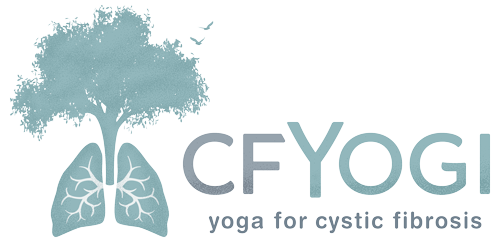This post is the second in our series about the yamas, the ethical practices of yoga in our relationships with others. This week’s topic is Satya, or “truthfulness” — which seems like something we could all use a healthy dose of right now in our lives.
Speaking honestly, this past week has been a taxing one for me to write about this. There has been so much disinformation about the coronavirus circulating rapidly on social media, from people I know on both sides of the political aisle, that it’s hard to keep up with it all. I want to stay informed and amplify the actual science that we all need to know to respond to this evolving pandemic. But I also need to keep myself from going down the rabbit hole of conspiracy theories that seemingly never end, with their circular reasoning like a snake eating its own tail.
And speaking honestly, it’s hard to keep the energy up to sort through and respond to it all in an accurate way that also maintains compassion toward those who have taken hold of false beliefs. So I have often ended up disconnecting from social media entirely. It’s why it took me so long to finish writing this post (which I aimed to publish a week ago). When there are so many different layers of truth – personal, scientific, or universal – it can be hard to boil it down to one concrete thing.
So I’m going to narrow the lens and keep the topic small: speaking honestly.
Honesty acknowledges that words have power
As we all learned when we were kids, honesty simply means “not to tell a lie.” Your words should be true, not lies made up for your own benefit. This is easier said than done, because sometimes we fudge the truth, we color it a certain way to manipulate others or to make ourselves look better. We might tell a “version” of the truth that will serve our own agenda, or omit a significant detail that’s easier to face than the whole truth. Sometimes we might even lie outright, believing that the ends justify the means.
This yama, satya, acknowledges that words have power. Honesty is good, but the truth can also hurt – we all know what it means to be “brutally honest.” And choosing to be honest often means choosing the more difficult road.
So when we think of satya in the context of the first yama, ahimsa (kindness) — as we discussed in our last post — we seek to do no harm with our words. We make sure that in speaking truth, we do not wield words as weapons, rather as instruments of kindness.
Practicing honesty on the yoga mat
As we practice satya on our yoga mat, that means opening ourselves to the truth . . . and un-deceiving ourselves of beliefs that may be doing us harm.
Practicing satya means letting go of our illusions so that we are better prepared to handle an uncomfortable truth. Maybe there’s something you’ve been feeling in your body that you’ve been conveniently ignoring, pushing through because of ego or even just a lack of awareness. If you keep pushing that part of your body, you might do more damage in the long run than if you listened and let it rest. That self-deception can be physically damaging.
If I’ve got all the signs of a CF-related lung infection exacerbation, I could act as though it’s not happening. I could push myself through, deceiving myself that everything is fine as my lungs continue to deteriorate. Or I could suck it up, and recognize that the compassionate thing is acknowledging that truth so that I can ask my doctors for help, and take the inconvenient steps of caring for myself with a round of IV antibiotics.
I think one of the main reasons we humans have a hard time being honest is that truth requires trust. You need to trust that the person you’re speaking to won’t use your words against you, and that they have your best interest in mind. When I’m honest with myself, I’m choosing to trust myself. When I’m honest with my doctors, I’m choosing to trust that they will make recommendations that keep my best interest at heart, rather than their own financial interest. When I’m honest with a loved one I’ve hurt, I’m choosing to trust that they will still love me at the end of the day.
Truth requires (and creates) trust
On the mat, I can speak truth to myself, and in doing so, learn to trust myself. Truth begets trust, which in turn generates more honesty and a positive feedback loop of trust. That is what relationships are built on.
I think that America’s fragmented pandemic response (and the emerging epidemic of conspiracy theories) is the result of a decades-long deterioration of trust in our society. When you believe that medical experts are speaking from their own agenda, or that our elected leaders have their own selfish interest in mind, you simply don’t trust them to be honest with you. Regardless of their credentials or their passion, if they are on the “wrong side” there is nothing they can do or say to convince you of their earnestness or honesty.
As this comic by the Oatmeal eloquently explains, people make illogical decisions when it comes to their own beliefs. When people are presented with information that doesn’t fit our entrenched belief patterns, our brains reject the pieces of information that don’t fit and discredit the speaker, rather than assimilating this information into a new understanding. So we have become factionalized, arguing against each other and retreating into our own echo chambers of self-reinforcing thought. In doing so, we miss out on important perspectives, to the detriment of our own health and safety.
And this is why if you use brutal honesty when attempting to persuade someone to see a different perspective, all you’ll do is reinforce their negative perceptions as they perceive a threat to themselves and their entrenched beliefs.
So the best – perhaps only – weapon that we have against this massive national distrust is in compassionate honesty. Choosing compassionate honesty means speaking in love to yourself and others, shedding your own illusions about why you believe what you believe, and helping others to do the same. Speaking words in kindness and recognition of each other’s humanity.
If you want to help someone else see the truth, keep speaking words of kindness and love. Work on listening to them, and understanding why they believe what they do. Because these narratives we build developed for a reason – sometimes out of a void of empathy, a dearth of good science, or simply a lack of anyone present in their lives who treated them like a human being even though they held different beliefs.
Words can be constructive or destructive, and your conscious choice to speak the truth with compassion will make the difference in what the result will be.











